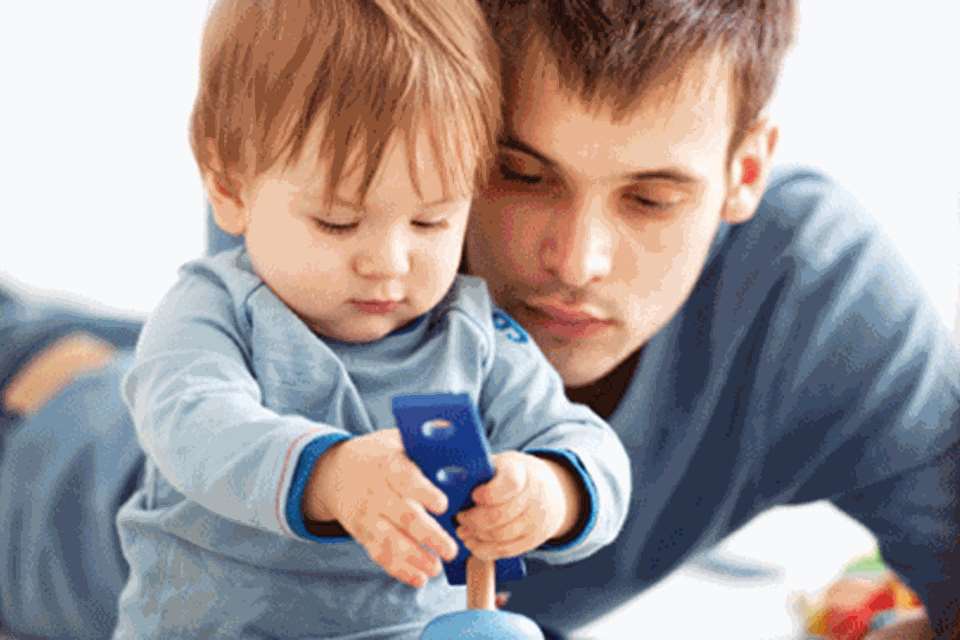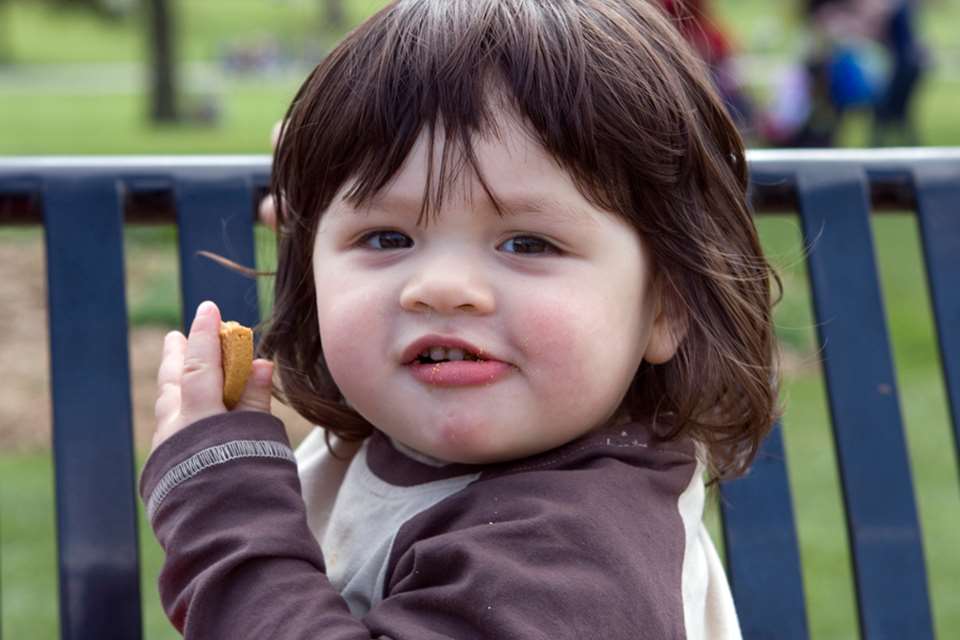Learning & Development: PSED: Part 1 - Early growth
Marion Dowling
Monday, July 13, 2015
Much emphasis is put on academic achievement, but how do we support each child to become a person? Marion Dowling begins a three-part series

In this current climate, which emphasises the need to focus on young children's achievements and ratchet up their academic standards, perhaps we should return to basic principles and ask ourselves two questions, namely:
- What type of people do we want our young children to become?
- How do we grow these people?
In responding to the first question, it is useful to recall two historic quotes. In the 1967 Plowden Report, Lady Plowden recommended that 'children should be agents in their own learning'1. The belief that young children should be supported to act for themselves is now strongly represented in the Early Years Foundation Stage (EYFS) through the characteristics of effective learning.
Almost 30 years later, in the influential Start Right report, Sir Christopher Ball pointed out that mastering subjects or disciplines provided merely 'tokens of learning'. He emphasised that 'the art of learning is concerned with the "super skills and attitudes" of which motivation, socialisation and confidence are the most important. These are the fruits of early learning2.
The first quote emphasises the importance of self-regulation, where young children learn to control their feelings, thoughts and actions, rather than be controlled. The second quote refers to the primacy of personal, social and emotional development (PSED) in ensuring that children learn how to learn.
Both statements suggest that regardless of academic achievement the type of person we become colours all else we experience and do in life. PSED must, then, be the top priority for all early years educators.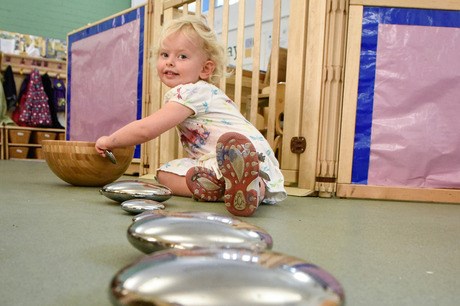
APPROACHES TO LEARNING
Then comes the question of how we best provide for learning. The way in which we view children informs how we plan and provide for them. We all subscribe to striving for quality, but recognising what it means is more difficult. Let's take a look at three different provisions. I will use the analogy of gardening, growing plants and growing the child.
Hot-housing
 Let's think about growing tomatoes. Some gardeners like to start them early - planting the seeds in small pots to germinate in a warm temperature pushes the tiny seedlings onwards and upwards. However, if the gardener isn't careful, the small tomato plant grows tall and spindly because the small pot doesn't offer it scope to develop a strong root structure, and so the leaves droop and the plant becomes etiolated.
Let's think about growing tomatoes. Some gardeners like to start them early - planting the seeds in small pots to germinate in a warm temperature pushes the tiny seedlings onwards and upwards. However, if the gardener isn't careful, the small tomato plant grows tall and spindly because the small pot doesn't offer it scope to develop a strong root structure, and so the leaves droop and the plant becomes etiolated.
Other plants are produced under a similarly narrow regulated regime, with prescribed growing conditions: a warm, ambient climate; plenty of water; regular doses of fertilizer, and frequent measuring of the plants' growth and appearance. The aims are fast growth, a good colour and a nice shape, so that the produce can reach supermarket shelves fast while looking good. Of course, when we taste those early tomatoes, or other hot-housed produce, we are disappointed, because they are tasteless - the promise of the fruit hasn't been realised.
Children can be grown in similar circumstances. Hot-housing children is based on the expectation that they should achieve certain knowledge and skills as early as possible and the belief that they will make rapid progress. Close adults - parents and practitioners - provide conditions that invite accelerated development, the intention being to encourage the child on the 'upwards and onwards' ladder of attainment.
Where learning is hot-housed, children are often required to hasten their pace of development. So, two-year-olds are anticipated to act like threeand four-year-olds and take part in mixed-age groups for circle times and group stories. Some two-year-olds do benefit from being with older children, but only for brief periods. Mostly, they need time to explore and experiment with their key person.
Hot-housed children are expected to fit in with predetermined plans, rather than the programmes being adapted for them. Practitioners work extremely hard to plan and deliver content, sometimes using commercial programmed lessons. Planning is detailed and often multi-layered, covering literacy, maths and all other areas of the curriculum. And the plans are fed to the children.
Some children who are force-fed content thrive and continue to make rapid progress. Many others, like forced plants, fail to flourish in the long term. They may have progressed well, be very familiar with letters and sounds, able to form letters and calculate (rather than problem solve), but they lack the energy and motivation to continue at this pace. These children are in jeopardy of becoming etiolated learners.
Hot-housing can result in children becoming hooked on praise and recognition and anxious about failing to succeed. In extreme circumstances, this approach can lead to children avoiding school (physically refusing to attend this place of unremitting pressure). More commonly, though, children wilt, unable to keep pace in the fast track. Rigid control of their learning means that children have not learned to be independent, to make decisions and choices for themselves. They are often at a loss to initiate and sustain play because their ideas have not been valued. Importantly, they start to lose the will to learn.
Wild and free
 Let's return to growing tomatoes and look at the opposite extreme of hot-housing. Here, we have plants growing freely and unsupported in a garden that hasn't been tended for months. Where once the plants were strong and vigorous, many have now become crowded out by weeds as nature has taken its course. They could do with care and attention and now, left to their own devices, they are vulnerable, prone to bugs and at the mercy of too little, or too much, rain or light. It is a fight for survival.
Let's return to growing tomatoes and look at the opposite extreme of hot-housing. Here, we have plants growing freely and unsupported in a garden that hasn't been tended for months. Where once the plants were strong and vigorous, many have now become crowded out by weeds as nature has taken its course. They could do with care and attention and now, left to their own devices, they are vulnerable, prone to bugs and at the mercy of too little, or too much, rain or light. It is a fight for survival.
Here, we can see parallels with approaches to learning and teaching in the EYFS. Its introduction, almost five years ago, highlighted the need for child-initiated, child-selected play to be in place.
Many nurseries provided this already, but for others, particularly in Reception classes, this was a new challenge. Some practitioners felt unsure about not directing children. Too often, the requirement to provide for child-initiated play was interpreted as handing over responsibility to the children and taking a minimal role.
Practitioners understood they were responsible for planning the curriculum and environment and observing the children, but otherwise believed that they should be very much on the sidelines in respect of play.
The fear of intervening and possibly interfering with children's play led to laissez-faire practices. Children were abandoned in play-based initiatives. There was sometimes this romantic view that all children are natural players, although our eyes and ears tell us that this is not always the case.
Without sensitive and appropriate scaffolding, some children cannot play in a group, others are overwhelmed by noisy and, what they see as, threatening superhero play from a group of enthusiasts. And without encouragement, a little pump-priming and nuggets of inspiration from a more informed other, play can become repetitive and children get bored and disillusioned.
There is, of course, a world of difference between abandoning children and giving them scope and space to develop their own play, but the devil is in the interpretation. In 2010, TACTYC carried out a small-scale research study looking at how children were experiencing the EYFS in Reception classes.
Although the Reception teachers interviewed professed to believe in play as a powerful education method, observation of practice revealed some interesting outcomes, including adults involved for minimal amounts of time in children's play (0.8 per cent in boy's play; 4.4 per cent in girls play)3.
An earlier study from the Association of Teachers and Lecturers exploring Reception practice found few opportunities for: sustained, shared and purposeful talk; sustained, complex imaginative play; authentic, engaging first-hand experiences. One conclusion was that 'play appears to be something that is very much left to the children, while teachers and other educators get on with the important business of getting through the curriculum and onwards and upwards... towards important targets' 4.
In 2010, TACTYC found that little had changed. Although practitioners were recognised to be tremendously committed to their work and exceedingly kind, what was missing, and in some respects still is, is the lack of understanding of the role of the practitioners in facilitating play and learning. Often there is confusion between interactions, interventions and interference.
Tended self-regulated growth
 To be strong and healthy, plants need the right soil and climate in which to grow; a measure of careful attention, particularly during the early stages of growth; an ongoing watching eye to ensure that they are thriving; and then the freedom to get on with their life cycle.
To be strong and healthy, plants need the right soil and climate in which to grow; a measure of careful attention, particularly during the early stages of growth; an ongoing watching eye to ensure that they are thriving; and then the freedom to get on with their life cycle.
Young children have very similar needs, and to tend this self-regulated growth, practitioners need to use 'playful scaffolding', a notion that respects the importance of child-initiated play but includes the adult who assists development, offering bespoke support in the following ways:
- establishing a close bond, so ensuring that each child knows that they are known
- promoting children's natural tendencies to be social
- observing, noting and responding to the child's initiatives
- showing interest, support, encouragement and affirmation
- supporting links in learning, recognising what the child has learned at home and developing this in the setting and classroom
- offering nuggets of inspiration to lift and refresh play
- engaging in conversations about what is going on, throwing out occasional questions that invite reflection ('I wonder...')
- inviting children to be curious and play around with ideas.
Children:
- develop positive mindsets, so that they seek and relish challenges presented to them or that they have found on their own. They fall in love with ideas and find friends who share these interests in play
- build their identities as competent and capable learners - 'I'm getting good at drawing circles'
- personalise and make links in their learning - 'That story of the little dog, it's like my gran's dog.'
Despite years of debate, research and guidance, child-initiated play continues to be an ill-defined and hazy notion.
One helpful definition comes from a document published by the former National Strategies: 'Play is freely chosen by the child, and is under the control of the child. The child decides how to play, how long to sustain the play, what the play is about and who to play with. There are many forms of play, but it is usually highly creative, open-ended and imaginative. It requires the active engagement of the players and can be deeply satisfying.'5
(Acknowledging that there are other ways in which children can enjoy and progress in learning, I will use this definition in the next article when considering how we use play to promote children's learning and well-being in aspects of their PSED.)
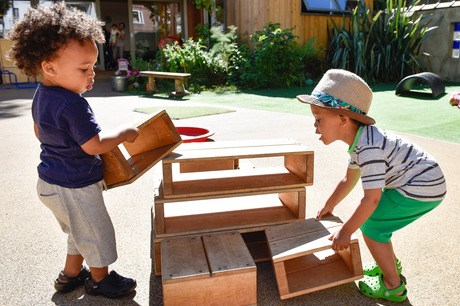
REFLECTION
Practitioners will argue for or against each of the three methods presented here and, of course, it isn't a matter of opting for one method and ignoring the others.
What is crystal clear, however, is that the teaching and learning methods used in settings and classes have a powerful influence on the way a child approaches learning and the sort of learner that child becomes.
As early years practitioners, we still have considerable autonomy. It may not feel like that and we may feel pushed from pillar to post trying to comply with new diktats, but most methodology is in our hands.
Maybe in supporting children to grow, we start to equip them to help themselves in learning. Do we do this: through controlling and accelerating their development; through leaving them to their own devices; or through building a close bond with each child, trusting their decisions and acting as their play companion, side by side?
Part 2 of this series will run in the 27 July-9 August issue of Nursery World
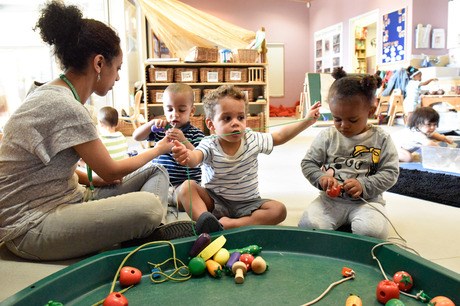
REFERENCES
1. DES (1967), Children and their Primary School, Report of the Central Advisory Council for Education, London: HMSO, para 5.29
2. Ball, C (1994) Start Right: the importance of early learning, London: RSE, para 2.17
3. TACTYC: The Association for the Professional Development of Early Years Educators (2010), Occasional Paper No: 1, p 3.
4. Association of Teachers and Lecturers (2004). Inside the Foundation Stage: recreating the reception year, 8.8.81.
5. The National Strategies Early Years (2009) Learning, Playing and Interacting: 10. DCSF.
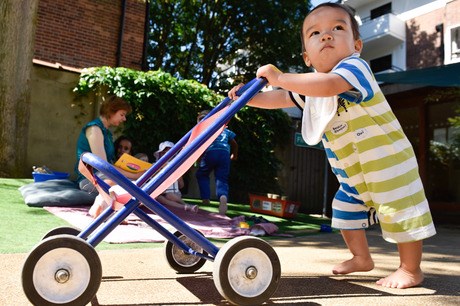
READER OFFER
Young Children's Personal, Social and Emotional Development by Marion Dowling is now in its fourth edition (Sage, £22.99). Focusing on the crucial area of young children's PSED, this book offers thought-provoking questions and practical suggestions to help readers reflect on and develop their own practice.
It has been updated to include: expanded coverage of key topics including independent thinking, living and learning with others, and dispositions for learning; a new chapter on 'Vulnerable children and fragile families', with sections on identifying risk, talking to families, and safeguarding and protection; guidance for working with parents in every chapter; and links to the EYFS and a focus on two-year-olds.
A 20 per cent discount is available to Nursery World readers. To order a copy, visit www.uk.sagepub.com/education and use the code UK15AF33, which is valid until 31 December 2015.




